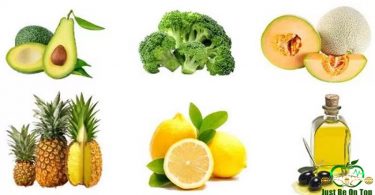
Advertisements
They come in bunches. They grow on vines. They’re green, red, purple and all shapes of round. And, they’re delicious. Yes, we’re talking about grapes. What we failed to mention in our lead was the fact the grapes are one of the most nutritious foods you can eat. Filled with potassium, carbohydrates, protein, Vitamin A, Vitamin C, calcium, iron, Vitamin B6, and magnesium (insert deep breath here) these tiny, flavor-packed fruits pack a giant punch. And if you eat grapes every day for one month, you may be very pleased with the results that you see in your overall body health including some of the following:
1. You’ll have a healthier heart
Grapes are loaded with antioxidants that are linked to a reduced risk of cardiovascular disease. Along with these antioxidants comes polyphenols which are also associated with decreased risk for cardiovascular disease.
In fact, a study conducted by researchers at the Boston University School of Medicine found that grape polyphenols could reduce LDL (bad cholesterol), lower blood pressure, i reduce inflammation, among other heart healthy benefits. It was concluded that a diet rich in fruits and vegetables, including grapes, can decrease the risk for cardiovascular disease.
2. You’ll have a healthier digestive system

Grapes contain fiber, and as such, help the digestive system move along quite nicely. What’s better is that the fiber found in grapes is mostly made up of insoluble fiber that remains intact as it moves through your intestines to keep your bowels healthy. The water inside of grapes is also a key component that aids in healthy digestion.
3. You’ll have more energy

Grapes contain carbohydrates, particular cellulose, which is a natural energy booster. Pop a handful of grapes in your mouth and you’ll have instant energy. And what’s even better, is that due to the high fiber content in grapes, they are slower to metabolize, giving you longer lasting energy.
Advertisements

4. You’ll have healthier kidneys
Grapes contain powerful antioxidants like anthocyanin (gives grapes their red to purple color) and resveratrol. Both play a key role in fighting off free radicals that could enter the kidneys causing infections and disease. These antioxidants also work hard to flush out waste products like uric acid.
The National Kidney Foundation recommends a daily consumption of 15 grapes for maintaining good kidney health as part of a balanced diet.
5. You’ll be protected against most cancers

Back to those powerful antioxidants again. These toxin-fighting powerhouses have anticancer properties, protecting the body against many cancers including breast cancer. polyphenols like resveratrol have anti-inflammatory properties along with their antioxidant abilities.
Research has shown that even just resveratrol supplementation could potentially have many positive health benefits including decreased cancer risk. Even so, we think eating grapes is the much better route.

6. You’ll breathe easier
Studies have shown a link between low fruit and vegetable intake and asthma, prompting researchers to find if the inverse is true — if eating more fruits and vegetables would help those with asthma. Results published in the journal, Nutrients, found that fruits and vegetables played a role in both prevention and treatment of asthma.
Now, grapes are an important fruit that my play a strong role in this. In fact, a 2007 study showed that children who grew up eating a Mediterranean diet high in nuts and fruits like grapes, were less likely to have asthma-like symptoms.This could be due to the large moisture content.
7. You’ll be stronger and faster

Advertisements
Grapes could improve your muscle strength and stamina. A study by the Department of Kinesiology at the University of Georgia found that the compounds found in the skins of grapes, including catechins, quercetin, and resveratrol, improved run time to exhaustion, fitness, and skeletal-muscle mitochondrial function in rats. And while no official studies have have been conducted on humans, this shows promise if the research transfers over, you could very well be your key to being the stronger/faster you, you’ve always wanted to be.





Comments